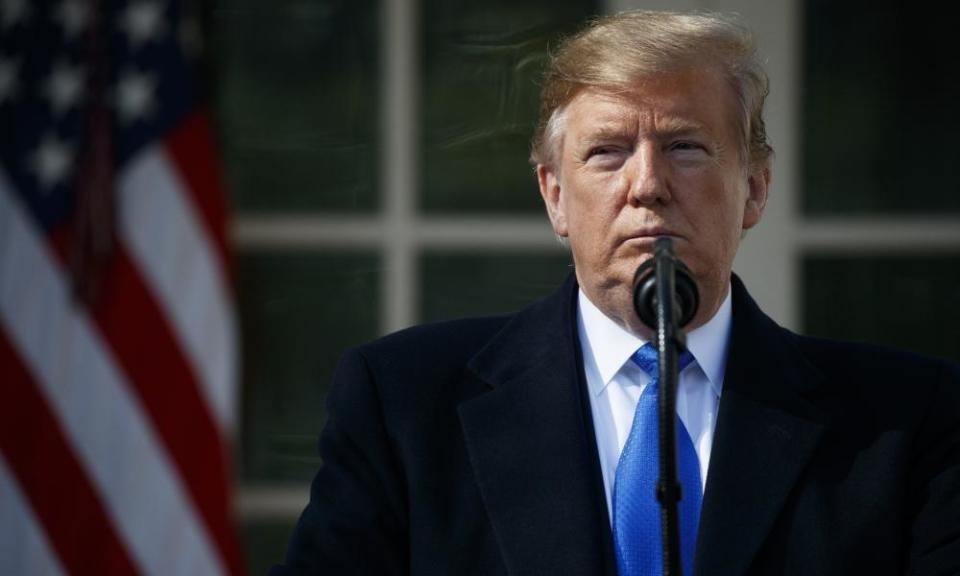Donald Trump hints at extension to China trade talks

President Donald Trump has conceded that he will delay planned increases in import duties on $200bn (£155bn) of Chinese goods if there is progress in trade talks in Washington next week.
Appearing to soften his demand for talks to conclude before 1 March, Trump said there could be a 30- or 60-day extension, should negotiators get closer to a deal. He said a delay was justified, based on the scope and scale of the talks. Speaking on the White House lawn, he said: “Trade with China – how big does that get? It must be the biggest deal in history.”
The US Dow Jones index surged more than 350 points following the more conciliatory tone from the president. Investors remain nervous, however, about an increase in duties on Chinese imports, which economists say could damage global trade.
Last year, the International Monetary Fund warned that rising trade tensions between the US and the rest of the world could cost the global economy $430bn, with America “especially vulnerable” to an escalating tariff war.
The US imposed 25% tariffs on steel and aluminium imports in spring last year and followed it with a 10% import duty on a further $200bn of Chinese goods in the summer. Beijing retaliated with $60bn of extra import duties on US goods destined for China.
A White House spokeswoman made a downbeat assessment of the highly charged trade negotiations, saying the two sides would have further talks after they failed to sign an accord in Beijing.
In a separate statement, the White House press secretary, Sarah Sanders, said the two economic superpowers would “continue working on all outstanding issues in advance of the March 1 2019 deadline”.
Referring to the Beijing talks, Sanders said: “These detailed and intensive discussions led to progress between the two parties. Much work remains, however.”
China and the US reached a consensus in principle on key issues during the talks, China’s state news agency Xinhua said on Friday. It added that they had held a detailed discussion on a memorandum of understanding on trade and economic issues, but gave no details.
The countries also discussed technology, intellectual property rights, agriculture, services, non-tariff barriers and currency, as well as potential Chinese purchases of US goods and services to reduce a “large and persistent bilateral trade deficit”, Sanders said.
However, it is understood that China failed to meet US demands for details of state subsidies to key industries or to provide plans showing how Chinese markets would be opened to foreign competition.
The Chinese president, Xi Jinping, met US trade representative Robert Lighthizer and Treasury secretary Steven Mnuchin on Friday after a week of talks at senior and deputy levels, and called for a deal both sides could accept, Chinese state media said.
US duties on $200bn of imports from China are due to rise from 10% to 25% if no deal is reached by 1 March. This is to address US demands that China rethink its rule that foreign firms must give up technology in exchange for access to Chinese markets, which Washington says is a breach of basic rights.
Lighthizer has also sought to better enforce intellectual property rights, which he says Chinese firms regularly abuse to gain an advantage over US rivals.

 Yahoo News
Yahoo News 